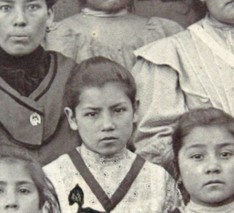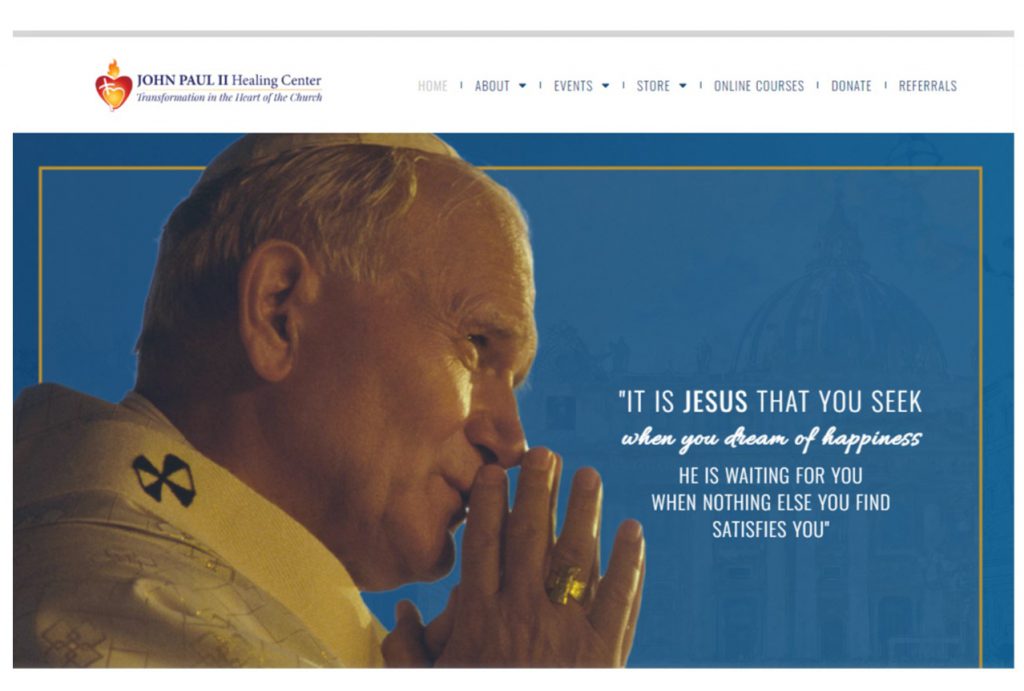Merry Christmas, everyone! Someone here wrote me a card and has given me permission to share it. This card means much to me because, for some years, I honestly didn’t know if this family would stay together. The wife wrote, “Every year that flies by is a reminder of how temporary our lives on earth are and why Jesus reminds us always to let go of our worldly attachments… 2024 I am happy to say has been a breakthrough year for my husband and me. When you were away on vacation, Fr. Richie Rich urged us all to read Scripture and finally my husband and I were ready to do this together. We have started to read Scripture before bed (maybe 3-4 times a week) and it seems to have brought us closer. We follow Father’s formula of 1) what is our one thing that speaks to us; 2) what would we say to Jesus if He were here. I’ve also made some changes on my end. With God’s strength and grace, I’ve been able to stay consistent in my kindness and compassion towards my husband… Somehow, the impossible seems finally probable and my husband and I may just have found a peaceful medium. I believe this truly is a miracle and a gift from God. Here’s to wishing you a restful Christmas and an incredible 2025 to come!”
Yes, some families don’t make it, yet it’s truer that Jesus works miracles in our families. Our theme today is A Family healing families because God is a family and wants to heal our families.
There are three insights on which to reflect from the genealogy of St. Matthew’s Gospel (Mt 1:2-16). First, family roots are still important to us. Apparently, more than 26 million people have done DNA testing for their family roots, with a Pew survey finding that 87% of people did it to know more about where their family came from. Jesus’ genealogy tells us that He came from a dysfunctional family but still loves this family. He actually didn’t have to come from this family; He could have chosen another, or even been born without ancestors. But, He wanted to be part of the worldwide human family that has so much pain in it.
 On a scale of one to five, how dysfunctional would you say your family is? I’m not going to ask for a show of hands. How difficult are your family gatherings during Christmas? In 1933, Jesus said to St. Faustina Kowalska, “The greater the sinner, the greater the right he has to My mercy” (Diary of St. Faustina, 723), and we could this adapt to, ‘The more dysfunctional a family, the more right they have to Jesus’ mercy.’
On a scale of one to five, how dysfunctional would you say your family is? I’m not going to ask for a show of hands. How difficult are your family gatherings during Christmas? In 1933, Jesus said to St. Faustina Kowalska, “The greater the sinner, the greater the right he has to My mercy” (Diary of St. Faustina, 723), and we could this adapt to, ‘The more dysfunctional a family, the more right they have to Jesus’ mercy.’
Second, four women are mentioned in His genealogy, which was rare for that time (Scott Hahn, Joy to the World, 32). Part of the reason is because three of them were connected to sexual immorality. Tamar acted as a harlot, Rahab was a harlot, and Bathsheba was sexually abused. We know they’re not being singled out as women because Judah was just as guilty as Tamar, King David was even worse, and Solomon did grave evils. However, during the first century, certain Jewish skeptics accused Jesus of being of an illegitimate birth, so St. Matthew was responding that, if Jesus is illegitimate, then so is David and your Jewish leaders, which they’re not.
It’s remarkable that Jesus chose to come from a family with so much marital infidelity. I remember the time when I found out that there was marital infidelity and sexual abuse in my family—it was sad. Yet, Jesus has been healing my family. God hates all sexual abuse, but He chose to come from a family where it happened, perhaps so that everyone would know that these sins/wounds don’t define us; what defines us is that He is now part of our families.
Sometimes we might feel embarrassed by something that happened in our family or by someone in our family— as if we are tainted by them. Nevertheless, just as being related to them affects us negatively, so being related to Jesus affects us positively. The more we allow Him into our lives, the more we’re defined by our relationship to Him.
Third, the main reason scholars believe the four women are mentioned is because they’re all Gentiles. They were included to explain to the people of the time that, while God called the Jewish people to be His chosen ones, His intention was always to build a worldwide family, and the Jewish people would be the eldest brother among many peoples.
To be Jewish, Filipino, Irish, etc., you need to be of a certain race. To be Canadian or American, you need to be born here or become a citizen. But God’s family is not racial or national. St. John says in tomorrow’s Gospel that, to be part of His family, one must be born “not of blood or of the will of the flesh or of the will of man, but of God” (1:13), meaning that God adopts us. And, unlike our race or nationality, with which we’re born, God wants our consent in order to be part of His family: “But to all who received him, who believed in his name, he gave power to become children of God” (Jn 1:12). Jesus asks for faith in and love for Him because faith and love are the spiritual blood that bonds us.
In the card I shared with you, notice that the wife said that she and her husband were finally ready to pray together, and she made changes in her heart. At some point, see if you’re able to make some decision towards Jesus in your heart. It could be big or small, but it should be with regards to believing in and loving Him. Christmas celebrates that Jesus came into this world in a hidden way and so He often starts miracles hidden in our hearts.
 In 1902, this 11-year-old girl named Laura Vicuña, of Chile, made a decision in her heart to offer her life for the conversion of her mother, and she only told a priest. She came from a very dysfunctional family: her father having died when she was two, her mother doing her best to keep the poor family afloat but struggling in a toxic relationship. To make a long, beautiful story short, Laura always felt close to Jesus and Mary, and God accepted the secret decision she made, and so her mother was rescued from that relationship and turned back to Jesus. Even the youngest person among us can have a huge impact on our families.
In 1902, this 11-year-old girl named Laura Vicuña, of Chile, made a decision in her heart to offer her life for the conversion of her mother, and she only told a priest. She came from a very dysfunctional family: her father having died when she was two, her mother doing her best to keep the poor family afloat but struggling in a toxic relationship. To make a long, beautiful story short, Laura always felt close to Jesus and Mary, and God accepted the secret decision she made, and so her mother was rescued from that relationship and turned back to Jesus. Even the youngest person among us can have a huge impact on our families.
To conclude, let’s ponder a sentence from St. John and then end with a story: “From his fullness we have all received, grace upon grace” (1:16). Jesus’ ‘fullness’ refers to His being one with God the Father, and the two of Them sharing perfect love in the Holy Spirit. From this perfect family, we receive superabundant grace.
I’ve mentioned a few times Dr. Bob Schuchts and the healing journey in his life and family. So many people have told me about his John Paul II Healing Center that I fully recommend it.
Perhaps the most amazing transformation involved his brother, Dave, who left home in high school to live as a hippie, while Bob judged him in his heart. Years later, Dave experienced healing through Confession and Anointing, which led him to reach out to his estranged daughter—a miracle. The day after their first Christmas together as adults, they were sitting on the porch and Dave told Bob something in private: He was afraid the doctor was going to confirm that he had a terminal illness. But, he added that he had been praying, felt peace, and asked God for a purpose, to live with that illness for Christ. For the next two years, as he was dying, their other brother, Wayne, took Dave in and gave him total care (like bathing), which opened up Wayne’s heart. Those two years brought the whole broken family back together and everyone had a chance to express their love for Dave before he passed. When Dave hugged Bob for the final time, “he held on for a long time, and said, ‘This is our best time together ever.’” And Bob said that was part of the “crowning gift in [God the] Father’s providence” (Bob Schuchts, Be Healed, 156).
The Trinity offers healing for our families. To repeat what Fr. Richard Conlin asked us months ago: What is the one thing that speaks to us? And, what would we say to Jesus since He’s here? Merry Christmas!


